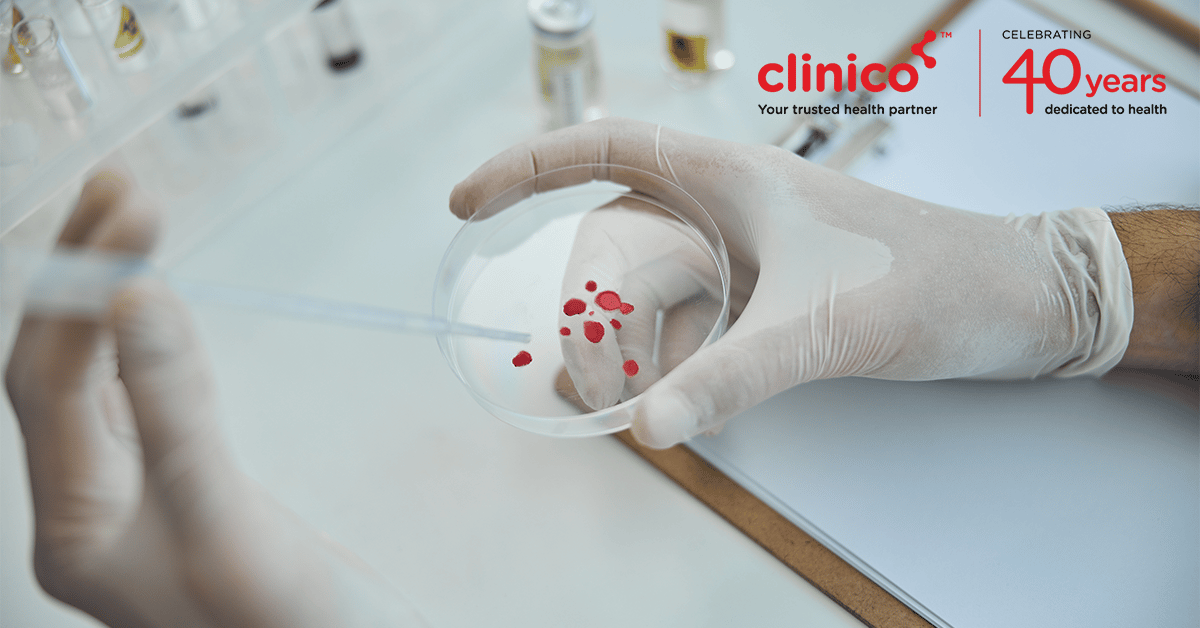
Want to know about the blood culture test in detail? You’re at the right place!
Read this informative blog for an extensive overview of the blood culture test including its introduction, when it’s required, and the meaning & accuracy of the test results.
What is a Blood Culture Test?
The blood culture test basically involves examining blood samples for infection-causing germs such as fungi & bacteria. It comprises placing a blood sample from a patient in a designated container in the pathology lab to monitor & check whether the germs grow.
When to take a Blood Culture Test?
A blood culture test may be required if you are experiencing the following symptoms:
- Fever
- Nausea
- Persistent tiredness
- Confusion
- Fast breathing
- Increased heart rate
- Gastrointestinal problems
- Decrease in frequency of peeing
- Significant drop in blood pressure
- Inflammation in various body parts
Blood Culture Test for Typhoid
As per the WHO (World Health Organization), a conclusive diagnosis of typhoid necessitates isolation of the Salmonella Typhi bacteria via blood culture. This procedure is deemed to be the benchmark for typhoid detection in a patient. Moreover, a blood culture test conducted during the initial days of typhoid infection is considered to be ideal for accurate diagnosis.
What does Blood Culture Test Results mean?
The blood culture test results mention positive & negative results. A positive test result indicates the presence of fungi or bacteria in the blood, whereas a negative test result signals their absence. A positive test result usually leads to the treatment being started immediately to control the infection.
Are Blood Culture Test Results Accurate?
Blood culture test results are quite precise, and this test is generally viewed as the finest way through which the germs causing an infection can be detected.
Having said that, there are a few factors that can alter the blood culture test results:
- Presence of germs that don’t grow in lab cultures
- Contamination of the blood sample
- Use of antibiotics
Types of Questions you should ask your doctor after getting the Blood Culture Test Results
Once you receive the blood culture test results, here are some of the questions that you can ask your doctor for a better understanding:
- Did any of my blood samples test positive?
- If the test result is positive, then what kind of germs were detected?
- What does this test result say about my infection?
- Is a follow-up test required?
- What kind of treatment is necessary to treat the infection?
Conclusion
The blood culture test is a commonly used pathology test worldwide for the diagnosis of infections and detecting the presence & type of germs in the bloodstream.
Depending on the test results, doctors may prescribe further tests for a more accurate diagnosis or plan the treatment procedure to be followed for treating the infection.
If you or anyone in your family/friends have been recommended a blood culture test, then Clinico is the place to visit!
Contact us 24×7 on 9504555555 to schedule an appointment at your nearest Clinico pathology lab in Mulund, Thane, Bhandup or Airoli!
